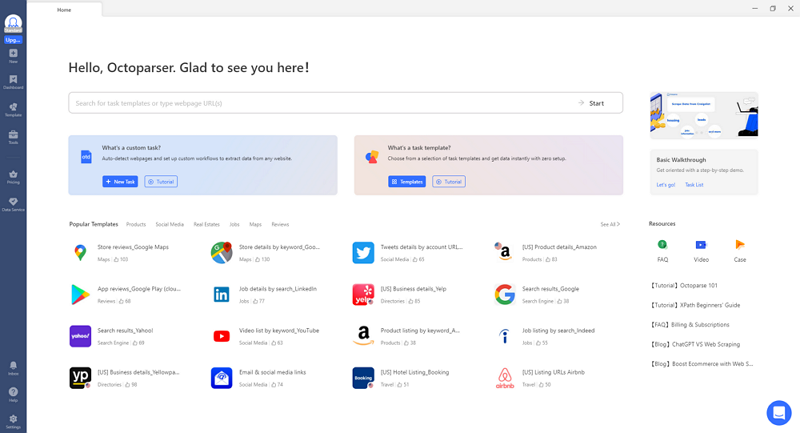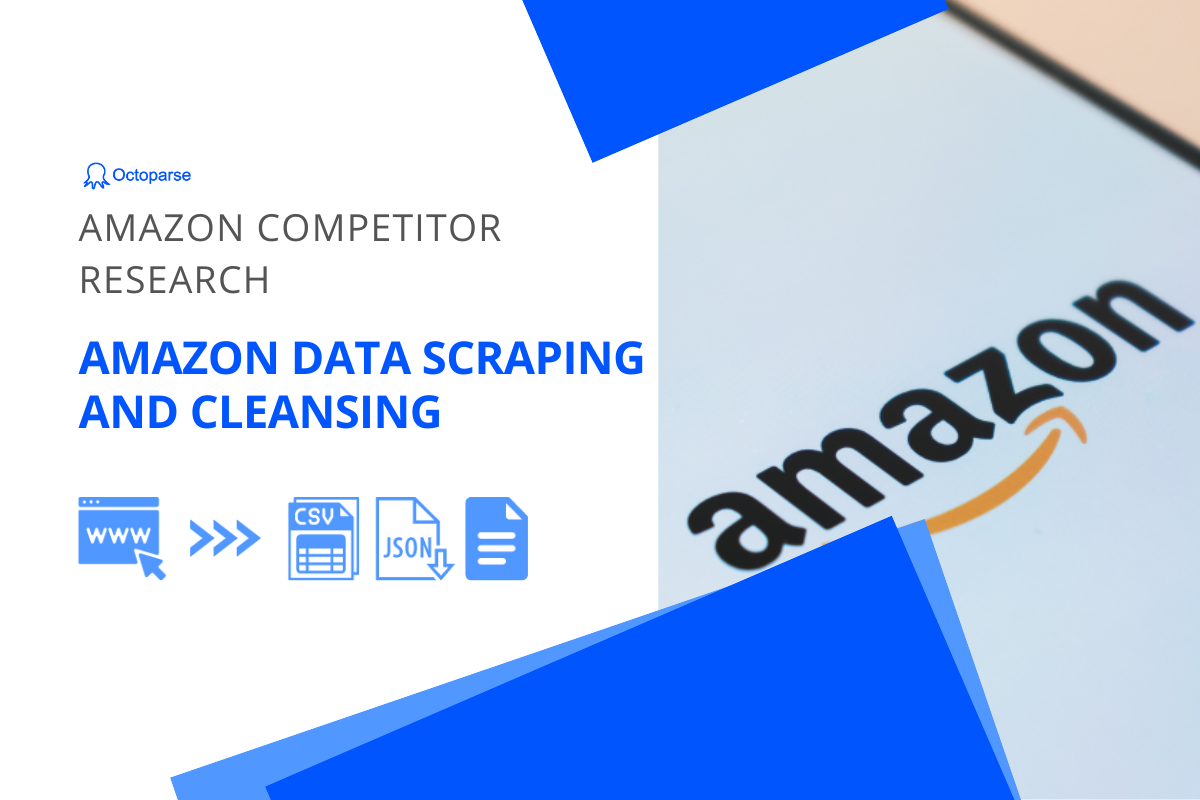Academic research involves collecting, analyzing, and interpreting data and information to contribute valuable insights and knowledge. Useful academic data can provide answers to research questions, support evidence-based arguments and advance our understanding of the world.
For students, research data helps them complete assignments, gain good grades and stay up-to-date in their fields. Teachers depend on academic data to create engaging lessons and course content. Researchers across industries require a steady stream of new research to expand human knowledge and fuel innovation.
But collecting academic data from journals, research papers, and other sources can be tedious and time-consuming. Here are 4 common questions asked when starting academic research, followed by how web scraping and academic research tools can simplify the process.
General Questions about Academic Research and Web Scraping
What Does Academic Research Involve?
Academic research focuses on uncovering new facts and information through various methods. It includes reviewing existing literature, gathering data from primary sources, analyzing the data, and reporting results.
Why is Academic Research Important?
Academic research is crucial because it generates knowledge that expands human understanding, drives innovation, and solves practical problems.
Answer fundamental questions
Researchers ask questions to satisfy their curiosity about how the world works. The quest for answers to questions like “How did the universe begin?” and “What causes diseases?” has fueled scientific and medical discoveries that transformed humanity. Every new finding answers old questions while sparking even more.
Test and build theories
Researchers propose theories to explain observed phenomena and natural laws. But a theory is just an idea until tested through rigorous experiments and research. Academic research either confirms existing theories or leads to new ones, expanding the frontiers of knowledge in the process.
Resolve doubts and debates
When there are conflicting viewpoints or uncertainty around an issue, academic research can provide evidence to settle doubts and resolve debates. Data gathered through careful investigation helps society arrive at more informed positions on controversial topics.
Drive innovation
Basic research that seeks to understand natural phenomena lays the groundwork for applied research that creates innovations. Fundamental discoveries in physics, chemistry, and biology have resulted in technologies like transistors, plastics, and DNA sequencing-all enhancing the quality of our lives.
Solve practical problems
Countless social issues, from hunger and poverty to disease outbreaks and environmental threats, affect humanity. Academics conduct targeted research to better understand and solve these complex challenges, aiming to make the world a more equitable and sustainable place.
In all these ways, pursuing knowledge for its own sake eventually yields answers, ideas, and insights that push the frontiers of what’s possible for humankind. That’s why the academic pursuit of truth through rigorous research has been so instrumental to human progress across history.
Why Data Is Essential For Academic Research
At its core, academic research relies on data to test hypotheses, verify theories and draw reliable conclusions. From biological experiments to surveys to historical analyses, academics depend on various kinds of data to advance knowledge and understanding. Here are a few reasons why data is indispensable for quality academic research.
It provides evidence. Researchers use data as objective evidence to support their claims, arguments, and theories. Without data points gathered from observations or experiments, research carries little credibility. Data-backed evidence helps make an academic case more factual and persuasive.
It reveals patterns and trends. By aggregating and analyzing large sets of data, academics can discern meaningful patterns and trends that provide insights. Emerging patterns in the data often point to new hypotheses or help refine existing theories.
It tests hypotheses. Researchers formulate hypotheses and make predictions based on their ideas. But data gathered from well-designed experiments and studies are necessary to determine if the hypotheses hold up. Data either supports or refutes the hypotheses, propelling research forward.
It drives reproducibility. For research to advance, other scholars must be able to reproduce study results based on the data presented. By making data and methodology transparent and available, research becomes verifiable, testable, and extendable by the wider academic community. This reproducibility fosters a robust and self-correcting knowledge ecosystem.
It informs decision-making. Quantitative and qualitative data collected by academics inform important decisions by policymakers, business leaders, and the public. From health data that shape vaccine strategies to economic data that reveal market trends, data ultimately influences decisions large and small.
Data acts as the bedrock on which the entire edifice of knowledge is built through academic research in all these ways. It determines what we know and how we know it, shaping decisions and progress in nearly every domain of human endeavor. That makes high-quality data an indispensable input for meaningful research and a researcher’s most valuable asset.
Where Can You Find Academic Data
Academic data resides in various databases, websites, journals, and research articles. They cover a wide range of topics, from sciences to social sciences and humanities. Some common sources include:
- Library databases like JSTOR, ProQuest, and EBSCO which host millions of research papers, journal articles, and eBooks.
- Online repositories like ResearchGate, Academia.edu, and SSRN that contain scholarly articles, working papers, and researcher profiles.
- Institutional repositories of universities, research institutes, and organizations focused on specific domains.
- Publishing platforms of academic journals in all fields that continuously release new studies and findings.
- Conference websites and proceedings that make presentations, posters, and papers from academic conferences publicly available.
- Search engines like Google Scholar are also good choices to get all related information quickly and freshly.
The abundance of academic data across these diverse sources makes it invaluable for students, researchers, and educators seeking high-quality information and insights.
Scrape Data for Academic Research Without Coding
When it comes to automating academic data collection, Octoparse is your stress-free companion. Follow these FIVE simple steps to extract research papers, journal articles, and other academic data from websites with Octoparse.

5 steps to scrape data for academic research
Step 1: Install Octoparse
Download Octoparse on your device and sign up for a free account. The intuitive interface will have you scraping in minutes.
Step 2: Enter the academic website URL
Copy the URL of the website you want to scrape – it could be ResearchGate, JSTOR, universities, etc. Paste the URL in Octoparse and click “Start” to load the page.
Step 3: Select the data you need
Click “Auto-detect webpage data” and Octoparse will highlight the relevant text, tables, and other elements. If Octoparse hasn’t made a good “guess”, you can manually select the specific data you need by clicking on it on the page. Also, you can rename and delete any data fields on the Data Preview panel at the bottom.
Step 4: Build the extraction workflow
Click “Create workflow” after selecting all the data fields you want. Then you will find a workflow that shows up on your right-hand side. You can see the step-by-step process that Octoparse will follow to scrape data there. You can preview each step by clicking on any action on it and modifying it if needed.
Step 5: Run and export the data
Hit “Run” to execute the scraper. You can choose between running locally or on Octoparse’s servers. The local run is more suitable for small projects, while the cloud run is better at processing huge projects. You can even schedule the scraper to run frequently to get the latest data automatically.
Once the task is done, export the extracted academic data as an Excel, CSV, or JSON file, or export it to a database like Google Sheets for easy analysis.
Wrap-up
Web scraping can help you collect quality data at scale, zeroing in on exactly what you need and nothing more. This improves research efficiency, saves precious time, and helps you produce better outcomes – whether it’s doing an assignment, advancing your knowledge, or contributing impactful research. Give Octoparse a try now and see how easily you can automate academic data collection to boost your research productivity.




